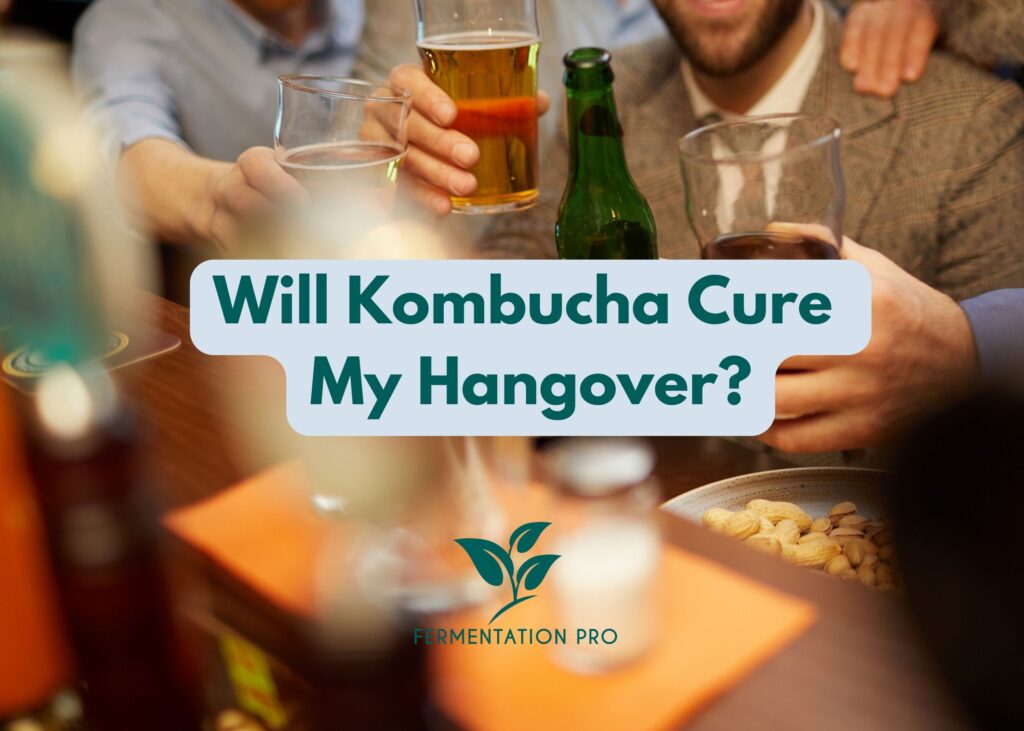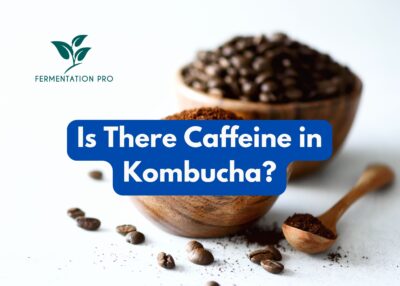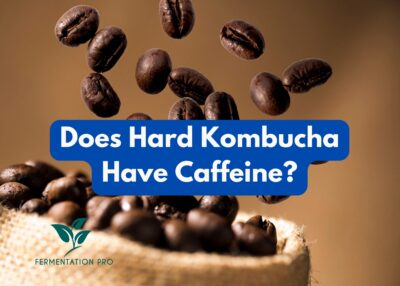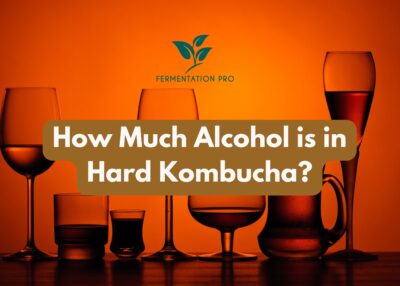If you like drinking alcohol and Kombucha, you’ve probably already asked the question “Will Kombucha cure my hangover?” Well, you are one lucky person because the answer to that question is yes. Here’s how Kombucha helps cure hangovers.
When you drink alcohol, you increase the free radicals in your body and damage your body’s cells. Kombucha contains a variety of antioxidants that can help nourish and protect your body’s cells from free radical damage. In addition, Kombucha helps with the detoxification of the liver and brings balance to the body’s systems. Hence, if you drink Kombucha after drinking alcohol, you can counter the negative effects of the intoxicating beverage and speed up your body’s recovery from a hangover.
Despite the promising effects of Kombucha on hangovers, you should take note that it is not a miracle remedy and you can still experience the symptoms of hangovers like fatigue, weakness, headache, vertigo, and more. So, aside from Kombucha, you should also try other hangover cures for faster effects. Keep reading to know more about possible cures for hangovers and how Kombucha can help cure and prevent them.
Table of Contents
What Is the Fastest Way to Cure a Hangover?
The fastest way to cure hangovers can vary from one person to another. Bodies recover at different paces and one hangover cure may not work as fast as it does in another person. Nevertheless, if you are experiencing a hangover now or want to have a future reference, here are 7 steps to cure your hangover by Harvard Health Publishing.
- Drink more alcohol to ease alcohol withdrawal and relieve the body from hangover symptoms.
- Drink fluids like water to prevent dehydration caused by alcohol
- Consume foods rich in carbohydrates to maintain your blood sugar levels and prevent fatigue and headaches.
- Opt for lighter-colored alcoholic beverages because those with darker colors contain methanol and other chemically related compounds that can be toxic and cause more severe hangover symptoms. Some dark-colored alcoholic drinks that you should avoid are whiskey and red wine. Instead of these, you may opt for white rum, vodka, and gin.
- Opt for pain relievers other than Tylenol. Despite being an effective pain reliever medicine, Tylenol may damage the liver when alcohol is still present in your system. Some pain reliever medicines you can use are Aspirin and ibuprofen.
- Have your morning coffee or tea. Although these beverages do not necessarily cure hangovers, their caffeine content can help with the grogginess and help you jumpstart your day.
- Eat foods and drinks rich in B vitamins and zinc before and after drinking as they may help reduce the severity of hangovers. Vitamin B and antioxidants like zinc can help fight oxidative stress that can lead to hangovers.
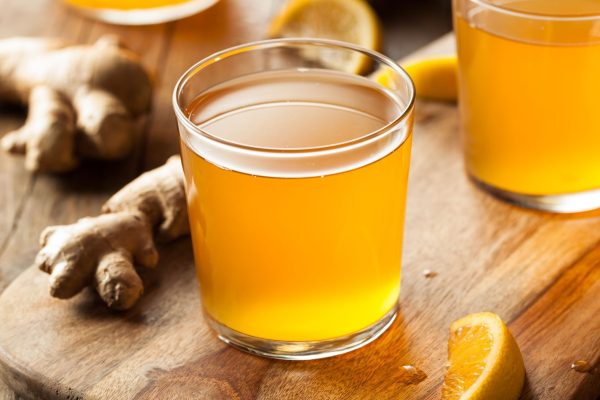
Should I Drink Kombucha Before or After Alcohol?
Regular drinking of Kombucha helps with improving your body’s general health and response to alcohol. If you are drinking Kombucha regularly then you can experience the same benefits and prevent the severity of hangover symptoms whether you drink Kombucha before or after alcohol. However, if you are not a regular Kombucha drinker, drinking Kombucha before drinking alcohol may be better for you.
The probiotics in Kombucha can help break down the products of this intoxicating drink and move alcohol out of your system faster preventing severe hangover symptoms the next day. In the next sections, we will talk more about the benefits of probiotics for hangovers.
If you are not yet convinced that Kombucha can be your go-to hangover remedy, here is a detailed guide on how Kombucha can help with hangovers.
How Does Kombucha Help with Alcohol Side Effects
Antioxidants
Antioxidants are known to protect the cells against free radical production and damage to cells caused by daily activities like drinking alcohol. Thankfully, this damage can be lessened by consuming food and beverages rich in antioxidants. Kombucha offers a rich source of antioxidants that can help neutralize the toxins in the liver, protect against free radical damage, and balances the body’s system. It also generally lessens the effects of alcohol on the body including hangovers.
Detoxification
Kombucha’s detoxification abilities can help prevent and cure diseases. Its detoxification properties are exceptionally beneficial in keeping the liver protected against the harmful compounds in alcohol. Nevertheless, you should still be friendly to your liver and keep in mind to drink moderately.
Probiotics
When drinking alcohol, the digestive tract can experience an inflammatory reaction. Thankfully, Kombucha’s probiotics can reduce this inflammation and keep the gut healthy. When there is less inflammation, you are more likely to experience less severe stomach aches and nausea caused by drinking too much alcohol.
If you drink Kombucha regularly, you may also experience relief from stomach aches and nausea not just caused by alcohol but other substances. Furthermore, the improved gut health caused by the probiotics can help lessen the headaches and migraine caused by alcohol.
Hydration
Alcohol can dehydrate you, so drinking electrolyte beverages like Kombucha can help replenish the lost liquid in your body. Kombucha is high in electrolytes which is an essential substance in rehydration. It is also low in sugar which makes it a great option for people who are trying to cut on sugar.
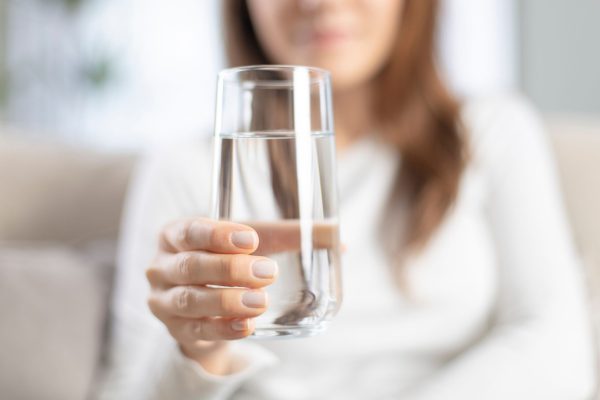
Can I Drink Kombucha to Replace Alcohol?
Kombucha does contain alcohol however this amount is usually not enough to get the same intoxicating effects as drinking alcohol. However, if you like to relax after a long day without wanting any hangover, Kombucha is no doubt a great alternative.
You may also use Kombucha in mocktails or cocktails along with other fruits and flavorings. In addition to that, you can use it as a mixer with some alcoholic beverages to lower the alcohol content of the drink. Kombucha as a mixer can also help enhance the taste of alcohol.
What Drink Best Helps a Hangover?
The best drinks for hangovers are those packed with electrolytes. Drinking alcohol causes your body to lose water and experience an electrolyte imbalance. This makes electrolytes an important mineral for treating hangovers. Electrolytes are certain minerals that help balance the amount of liquid inside and outside the cell and all over the body. These electrolytes include sodium, potassium, magnesium, and calcium.
Not drinking beverages with electrolytes after binge drinking alcohol may cause a severe electrolyte imbalance. Below are just some of the possible effects of electrolyte imbalance according to healthifyme.com
- Irregular blood pressure
- Disorientation or mental confusion
- Fatigue
- Nausea
- Rapid heartbeat
- Irregular urination and thirst
- Possible fainting and seizures
Drinks with Electrolytes
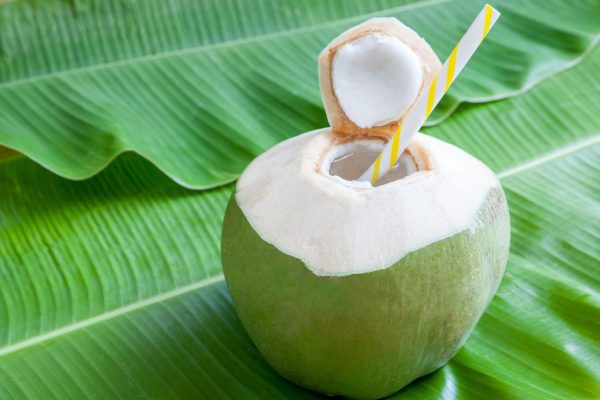
Any beverage including water contains some amount of beneficial electrolytes. However, there are some beverages that contain more minerals needed to give you an electrolyte boost. Here are some of the best electrolyte drinks to try when treating a hangover.
- Non-fizzy sports drinks like Gatorade, Pedialyte, and Powerade
- Milk
- Fruit juices
- Coconut water
- Shakes that contain fruit, vegetable, nuts and seeds, legumes, and dairy products
For a quick electrolytes charge, you may also dilute an electrolyte tablet into the water. This is a simple, quick, and easy way to rehydrate the body.
If you have no access to these beverages or electrolyte tablets, you can simply drink water.
Although staying hydrated doesn’t entirely cure your hangover, dehydration can make hangover symptoms worse. Hence, it is best to drink as many hydrating beverages as you can.
Is Yakult Good for Hangovers?
The straight answer is yes. Yakult can potentially help cure your hangovers. We know Yakult as a go-to probiotic drink for many. This drink offers live probiotics in one small bottle that is great for both young and adults. The same gut-loving probiotics can help with treating hangovers.
Yakult’s probiotics help cleanse your gut and nourish your gut microbiome. This helps increase the good bacteria in the gut, detoxify the gut from harmful toxins in alcohol, and relieve symptoms of a hangover
Apart from Yakult, other foods and beverages rich in probiotics like greek yogurt and Kombucha can also help cure hangovers.
Can Probiotics Help a Hangover?
The straight answer is yes. Probiotics are known to be good for the gut and general health. In addition to that, they also pose potential benefits for hangovers and prevent bodily damage caused by drinking alcohol. Below we discuss these benefits in more detail.
According to redbook, Probiotics can break down and detoxify the body from acetaldehyde, a substance known to be responsible for inflammation and other hangover symptoms. Probiotics can help move acetaldehyde through your system faster so you can also feel hangover relief faster.
- Helps maintain the balance of bacteria and yeast in your gut
Drinking alcohol can throw the yeast and bacteria in the gut out of balance. Probiotics can help restore this balance and prevent stomach problems related to too much drinking of alcohol.
- Minimizes effects of alcohol on the digestive tract
Alcohol can increase acid production and irritate the gut lining. This leads to inflammation of the digestive tract. Luckily, probiotics can help. Probiotics are known to reduce inflammation in the digestive tract by stabilizing gut microbial activity.
- May help improve liver health
In addition to helping with a hangover, probiotics may also help improve liver health and function. It helps decrease liver enzymes that were elevated due to drinking alcohol.

